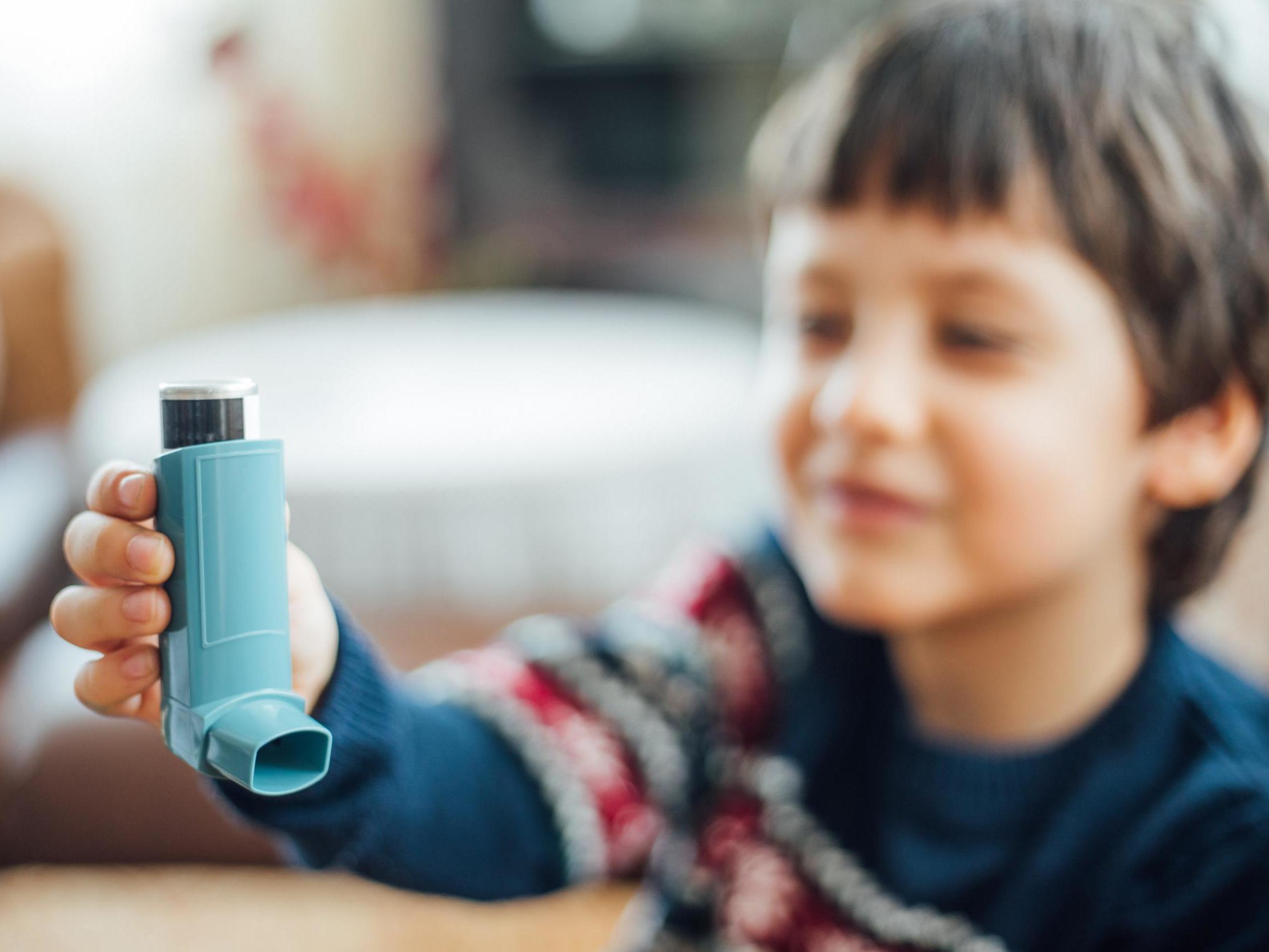Falling air pollution and fewer triggers in lockdown prompts major drop in number of children needing emergency asthma treatment
Doctors welcome news but urge sufferers to seek treatment for their symptoms as lockdown restrictions ease and exposure to triggers rises, reports Mike Waites

The numbers of children needing emergency treatment for asthma has plummeted since lockdown began, according to new figures.
The fall, contributing to an overall drop in asthma cases among all patients of around a half, is being linked to cuts in air pollution and less exposure to triggers for the illness as people stay at home.
Latest snapshot figures used by Public Health England to monitor emergency attendances at around 70 hospitals across the country show numbers of asthma patients seeking treatment for the illness have fallen by around half since lockdown began in March compared to the same period last year.
The reduction in emergency cases has been even steeper for children, by up to three-quarters.
But campaigners are urging sufferers to seek treatment as restrictions ease amid expectations people most at risk from coronavirus will be told by the government they have no need to shield from the end of next month.
The illness claims about 1,500 lives a year in the UK and leads to nearly 80,000 emergency hospital admissions among more than five million sufferers.
The onset of the pandemic led to shortages of asthma inhalers as demand surged amid concerns patients were more susceptible to coronavirus.
Patients with severe symptoms were among those in high-risk groups told to shield by the government, although double the number of asthma patients are believed to have locked down than those formally notified.
Campaigners say the significant reduction in emergency cases could be due to people dealing with their illness more effectively, with a survey by Asthma UK in May finding four in five managing better during the outbreak.
Remote digital consultations with GPs were proving popular and are expected to be an increasing feature of wider NHS care in future.
But there are fears some have failed to seek treatment, prompting calls for patients to get urgent help if required.
Concerns are also rising for the most vulnerable who are expected to be told they no longer need to shield but will need extra protection against coronavirus once they return to work.
Pressures are also likely to mount on hospital respiratory services following the pandemic, with significant numbers of worst-hit coronavirus patients needing ongoing treatment and rehabilitation for damage caused by the virus.
Joe Farrington-Douglas, head of policy and external affairs at Asthma UK, said: “We’ve seen a consistent drop in emergency attendances for asthma during the pandemic, which could be because people are managing their asthma better, or because the lockdown has meant they are less exposed to air pollution, chemicals and dust at work or school, pollen or seasonal viruses, which are all triggers for asthma attacks.
“However, we are concerned that the low figures are a result of people with asthma choosing to manage their symptoms at home rather than visiting hospitals for fear of being exposed to Covid-19, or putting pressure on an already stretched NHS.”
GP Andy Whittamore, clinical lead for the charity, urged people to seek treatment for their symptoms as lockdown restrictions ease and exposure to triggers rises.
“The NHS is open for business and people are there to help you,” he said.
“Delaying getting the help you need for a flare up of your asthma can make it harder to treat.”
A similar fall in cases has been seen in the United States. Research published this week showed the number of patients visiting the children’s hospital in Philadelphia fell by 76 per cent in the first month of the pandemic after a stay-at-home order was issued by city authorities.
Numbers of children hospitalised also decreased, suggesting the fall in visits was not solely linked to patients avoiding hospital due to the virus.
Doctors said they were surprised at what they described as a “dramatic decline” at a time when circulating viruses and levels of pollen were usually high.
They said better understanding for the reduction in cases would help patients manage their disease once social distancing guidelines were relaxed.
Paediatrician Chen Kenyon said: “These results may offer new insights on where to best focus efforts to improve asthma outcomes outside of a pandemic scenario.”
Join our commenting forum
Join thought-provoking conversations, follow other Independent readers and see their replies
Comments